KNOXVILLE, Tennessee — Dozens of people have died while under the watch of East Tennessee jailers since 2016, a 10News review of records from more than a dozen law enforcement agencies revealed.
Some took their own lives, some overdosed and others died of illness and injury, the records showed. Most were awaiting trial — still innocent in the eyes of the law, but dead behind bars.
"Nothing is getting better, it's just getting worse," said attorney Lance Baker, who represents the families of several people who have died in East Tennessee jails.
The facilities are often chronically underfunded, understaffed and overcrowded, Baker and some county sheriffs said. In East Tennessee, jails in Hamblen and Cocke County are not fit for inmates, a state accreditation agency found.
"The working conditions are bad," said Hamblen County Sheriff Esco Jarnigan, who struggles to maintain a full staff of corrections officers. "But the pay is absolutely ridiculous."
He also bemoaned inmates — who are often also addicts— smuggling contraband into the facility.
"We have medical staff who try to look after these people," he said. "They try to monitor these people. But, you know, sometimes they're destined to die."
But families of dead inmates question whether the jails do enough to keep their loved ones healthy.
"Is there no compassion?" asked Buffey Murphy, whose nephew died in the Knox County Detention Facility this summer. "Just because he's in jail doesn't mean he doesn't matter. He still has the same rights as everyone else for his medical [care] and his life."
He went into jail—and he never came out

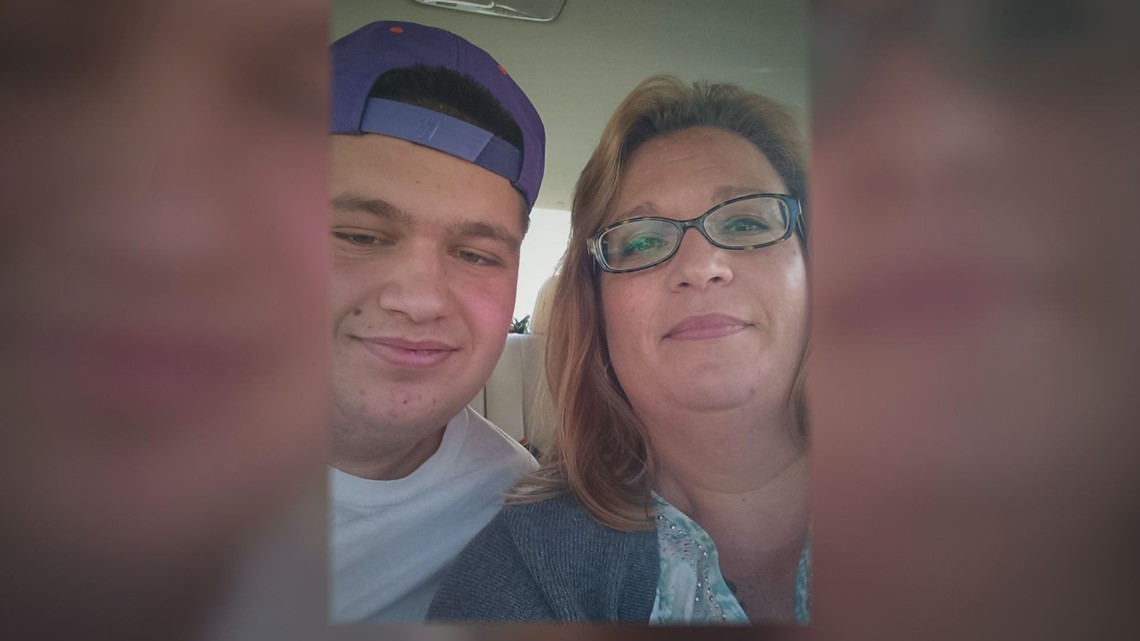
Dawn Everly thought jail would be the safest place for her son.
Jack McCarthy, 21, struggled his whole life with mental health issues, including ADHD, oppositional defiance disorder and severe mood disorder, Everly said.
"I like to call them his inner demons, because he struggled with a lot," she said. "But he always had the best intentions."
From her home north of West Palm Beach, Florida, she grew increasingly dismayed as she watched McCarthy self-medicate with meth and heroin after he moved to East Tennessee.
"I didn't want him to be dead on the side of the road because of the drugs he was doing, because of the state of mind he was in," Everly said.
In August 2020, she notified the Anderson County Sheriff's Office after receiving a disturbing call from McCarthy who was "high as a kite." When officers arrived, she said he tried to entice them to shoot him.
Officers arrested McCarthy for violating his parole on a burglary charge and put him on suicide watch at the Anderson County jail.
"I thought it would give him the opportunity to get off the drugs and be able to think more clearly," Everly said.
McCarthy, however, hanged himself in his jail cell in late November 2020, an autopsy report said — three months to the day after his 21st birthday.

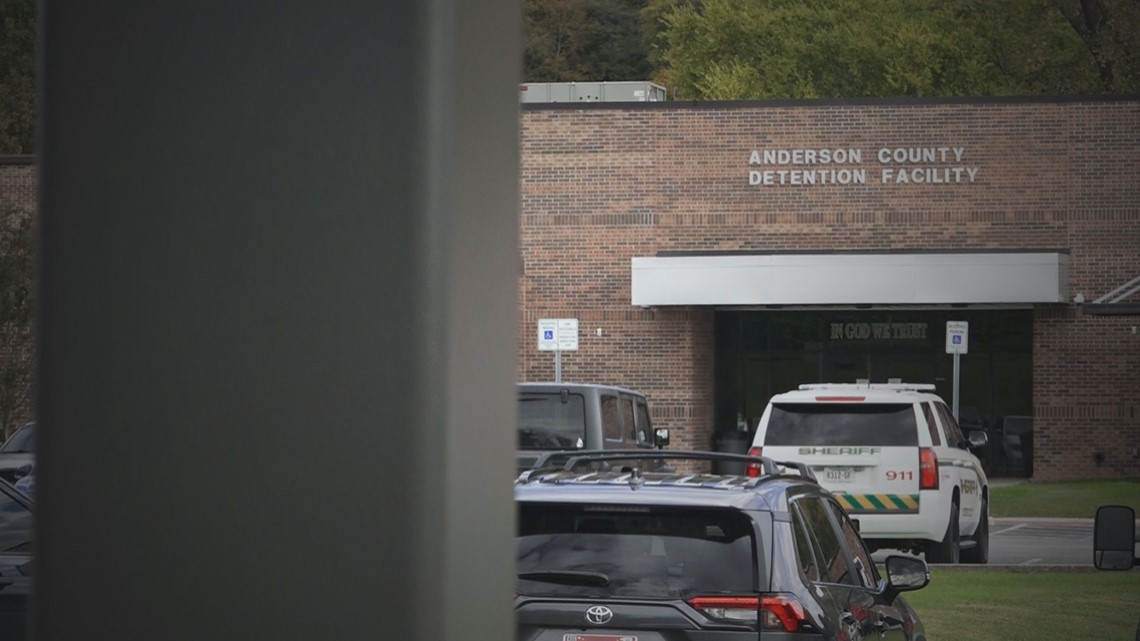
A review of McCarthy's case by the Tennessee Bureau of Investigation and the district attorney general found jailers did nothing wrong.
A spokesperson for the Anderson County Sheriff's Office said he could not comment on the case.
But officials with the department said the Anderson County Detention Facility is clean, well-kept and not overcrowded. They say it has consistently maintained state standards.
McCarthy had been taken off suicide watch after his condition was "observed and evaluated" by jail staff, a memo from District Attorney David Clark said. It detailed behavioral problems in the days before McCarthy died that led him to be sentenced to solitary confinement for four months and denied access to some personal belongings.
Clark said investigators reviewed recordings from McCarthy's jail phone calls and found "McCarthy seemed to have troubled relationships and made suicidal comments."
"There is no information that corrections deputies or staff were made aware of McCarthy's more recent statements to friends and family regarding suicide," the memo concluded.
Dawn Everly struggles to understand how it could have happened. She said she called to notify jail staff multiple times of her son's mental illnesses — and said his suicide was "totally unexpected."
"I understand [jailers] are overwhelmed and probably understaffed, but if you're being made aware that somebody has a mental illness and a history of it and has struggled with it their whole life — is that not something you should pay attention to?" Everly asked.
Knowing what she knows now, she said, she never would've called law enforcement or let her son go to jail in her attempt to get him help.
"I don't know what I would have done, but I wouldn't have let him be in their hands," she said.
"We got to get serious about this"

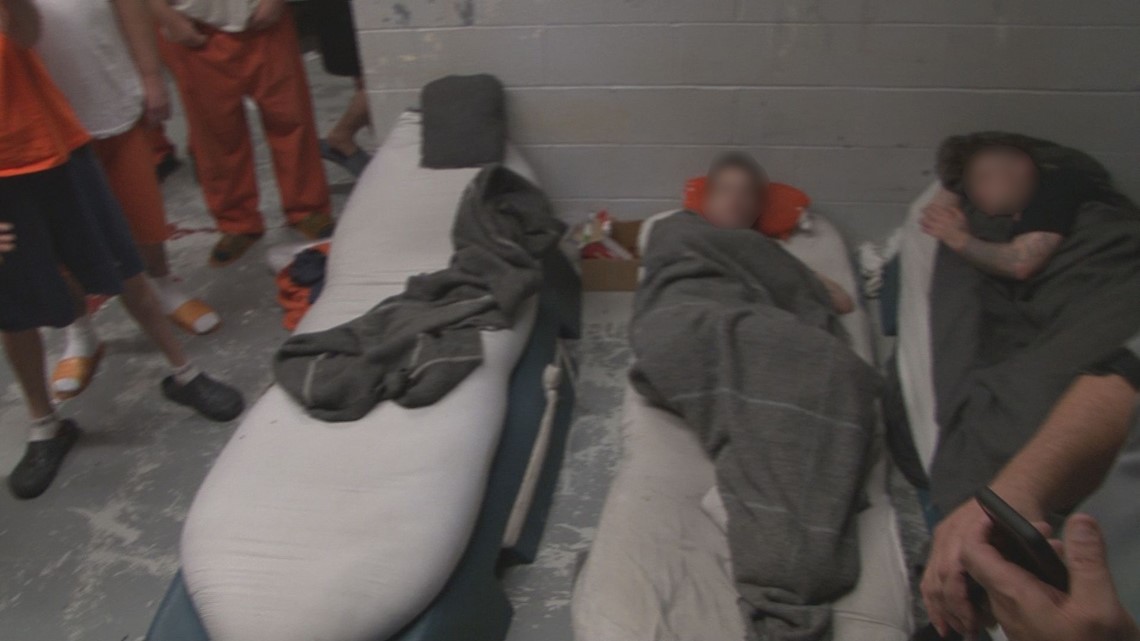
The Hamblen County Sheriff and the civil rights lawyers suing him agree on a nickname for his jail: "the dungeon."
The partially underground, dark and poorly ventilated facility has chronically lacked basic certification from the Tennessee Corrections Institute, Sheriff Jarnigan said. It's not only dangerous for inmates, but also corrections staff.
"We have almost an assault of some fashion every day," he said.
Since taking office in 2006, Jarnigan has publicly and repeatedly called for funding for a new jail to be built — one with more space than the crowded "dungeon," where inmates sleep on the floors and in the shower stalls with only inches of separation.
In neighboring Cocke County, where the jail also lacks state certification, Sheriff Armando Fontes cited frustration with conditions as one reason why he's not seeking re-election. "Sheriffs are only successful when county commissions provide adequate facilities and the resources necessary to change lives," he said in a statement.
Elected county commissioners typically control the county's budget — including funds for additional pay, new resources and facility upgrades.
Fontes also blamed inmates for smuggling illegal drugs into jails, leading to overdoses, deaths and costly lawsuits.
"It is very difficult to protect someone from their own self-destructive behavior," he said.
Jarnigan, Fontes and Knox County Sheriff Tom Spangler all cited drug smuggling as a key contributor to in-custody deaths.
"A big part of the time, when those inmates come into our facility, they've either come in with something inside of them, they've either taken something before our officers came into contact with them," Spangler said. "We may never know that it's there until it's too late."
"Any time somebody dies within our facility, you know, it's not a good thing at all," he said. "We certainly don't want that to happen."

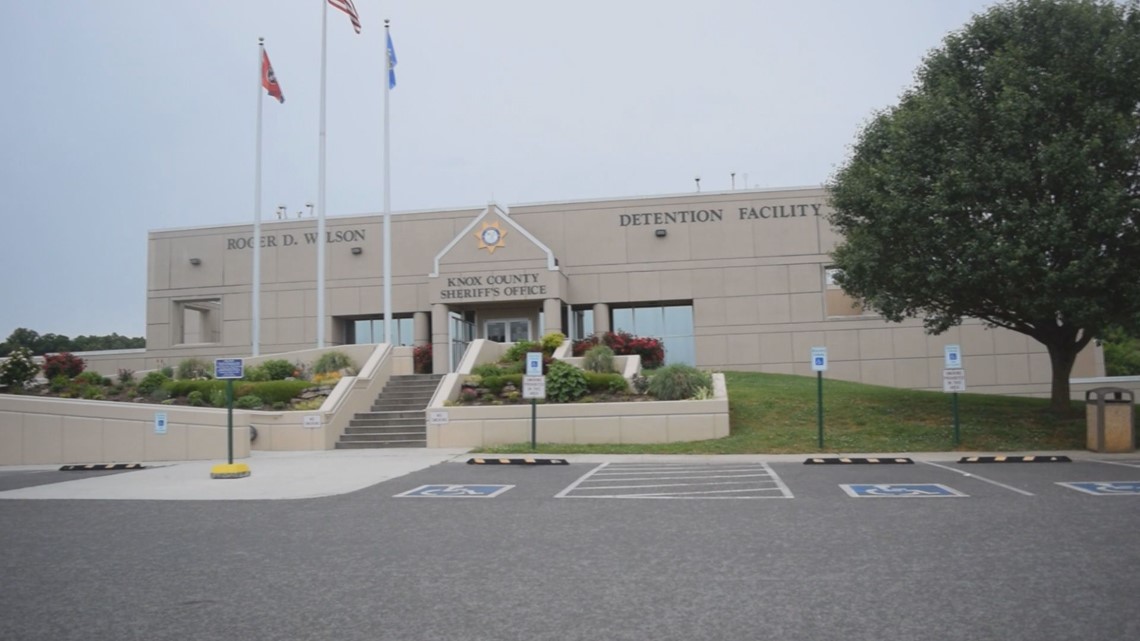
By law, sheriffs offices are responsible for the medical care of inmates in their custody. The Knox County Detention Facility boasts a "mini-hospital," Spangler said. Other jails do not have the capacity for such care.
"We have a policy that they have to walk into jail," Jarnigan said. If an arrestee cannot enter on their own, Jarnigan's deputies will send them to a hospital before accepting custody.
"Many drug addicts, when they get arrested are on the doorstep of death," he said. "It's frustrating that they die in the jail, because when they die in the jail, we are going to get sued. I don't care what we do to try to prevent it. When they die in jail, someone's going to blame us for the death."
"It comes down to money"
Knoxville attorney Lance Baker often files the type of civil rights lawsuits Jarnigan dreads after an in-custody death. Baker said existing jail conditions contribute to in-custody deaths, but so do the jailers and leaders who allow those conditions to continue.
"It comes down to neglect and, at the end of the day, it comes down to people," he said. "But again, it comes down to money."
Often, Baker said, corrections officers are poorly trained and just starting their law enforcement careers. He said they find themselves joining an understaffed shift, overwhelmed by the number of inmates packed into a small space.
"I've taken depositions of corrections officers from Hamblen County and they're scared to even go to work," he said.
Low pay only compounds the struggle to hire and retain jail staff, Jarnigan said. "The pay that they have been receiving, it is not acceptable for the job they have to do," he said.
Jarnigan said he has had a full jail staff for just two weeks in the past 15 years. In Knox County, Sheriff Spangler said he's currently looking to hire 35 corrections officers.
The need for staff sometimes comes at the expense of quality employees; earlier this year, the TBI accused a former Cocke Co. jailer of conspiring to assault an inmate. Other corrections officers have faced termination for smuggling drugs into the jail on inmates behalf.

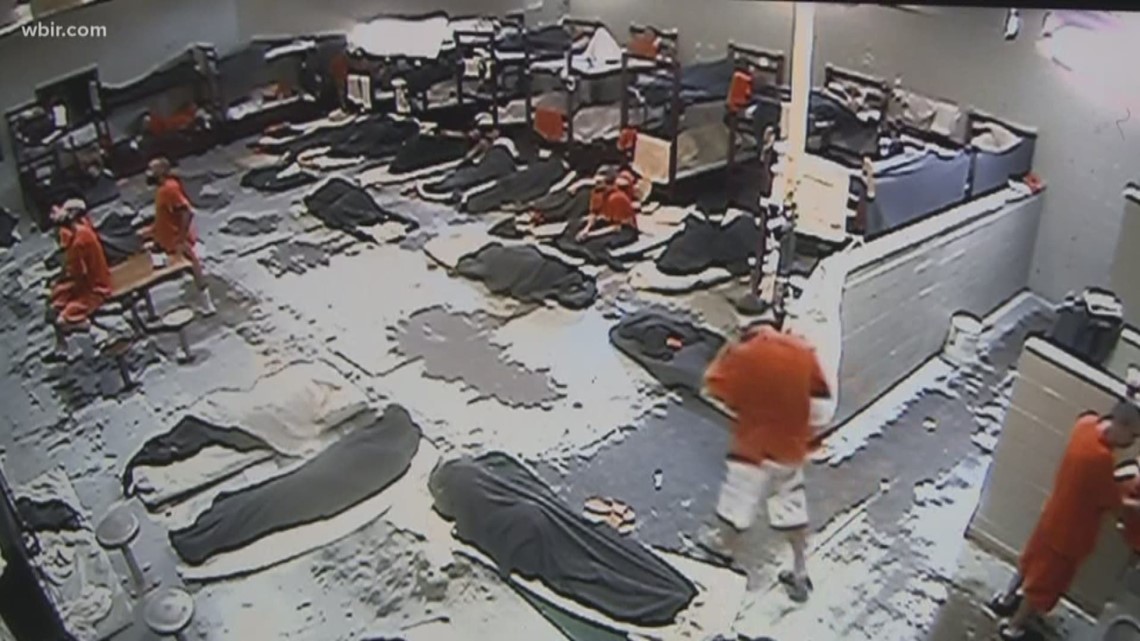
Fontes blamed a lack of funding for adequate pay: "Jails are facilities that every county commission should invest in with reasonable resources, adequate resources, it is a place where the pay should be set so it attracts the most qualified, persons of great moral and ethical character."
But Baker said lack of documentation and proper investigations when problems arise also contribute to dangerous conditions.
"The jails are not expanding, but the population is getting bigger. So that's just creating more problems in these jails, especially over time when we're not fixing even the little things," Baker said. "So at the end of the day, some of it comes down to money."
Cocke Co. Sheriff Armando Fontes also provided the following statement to 10News:
Law enforcement to me is a calling, a profession, and a position of massive responsibility. Sheriff's across the state are tasked with the responsibility of caring for each communities people who are sick, addicted, and struggle with mental health issues as they are incarcerated.
Law enforcement is much more than arresting people, it is about protecting all citizens to include those who are incarcerated. It is about providing proper medical care, substance abuse programs, and working with the judicial system to help rehabilitate those who are misguided in life.
Sheriffs are only successful when county commissions provide adequate facilities and the resources necessary to change lives. Under my watch as sheriff my staff and I have worked very hard to provide contracted medical care, a safe environment, we asked for and have increased the hours of medical care, we have implemented strict policy, training, and technology to hold employees accountable.
We hold employees accountable and have prosecuted those who breech our trust and the publics trust, we have worked with the educational system to provide GEDs to inmates, we have supported the building of a new jail which is the sole decision of a county commission. We have worked with religious organizations to provide drug and alcohol counseling to our inmates, we have held parenting classes, we have worked with mental health organizations to provide counseling to our inmates as well.
We have worked with a local industry and started an inmate job program designed to help inmates to have a job while incarcerated and thus would provide them with a savings account when they get out of jail for a fresh start with monetary resources. We have recently started yet another program which is funded by a federal grant for long term inmate drug, rehabilitation, counseling, and life skills training and we are forced to work the program in an inadequate, out dated jail that was built in the 1930s.
Despite all of our best efforts which are motivated by a genuine care for people who are addict's, I and other sheriffs and agencies are villainized, we face constant litigation, we face constant ridicule, and have horrible false accusations made by attorneys seeking a large pay check when an in custody death occurs, an inmate is assaulted, or an inmate suffers injury because of their OWN actions, negligence, or unwillingness to better their own lives.
This is partly why I personally am not seeking a fourth term as sheriff, because despite my 110% devotion to bettering the lives of everyone in my community, despite the long hours and long nights, despite the care, compassion, and devotion to bettering the lives of everyone, people chose to believe the lies, false hoods, and partial stories put on FALSE book, "FACE BOOK" and other social media platforms.
Despite our devotion, our best efforts, our accountability, and our willingness to better the lives of inmates who I have personally, encouraged, prayed with, counseled and tried to help, they fall victim to their own unwillingness to do what is best for their own self betterment. You can not change someone who is unwilling to help their selves, who spends all of their time in jail planning and developing strategic ways to sneak in deadly drugs. It is very difficult to protect someone from their own self destructive behavior.
Who bribes unethical, immoral, " SORRY" jailors who allow contraband in to jails or fail to follow departmental policy. A jail is a central hub of every community where all of the drug addicted, violent, and misguided end up. There in no jail in our nation that is drug free. Jails are facilities that every county commission should invest in with reasonable resources, adequate resources, it is a place where the pay should be set so it attracts the most qualified, persons of great moral and ethical character.
It should be a place that allows for the segregation of inmates who want to change, who want help, who want to better their own lives by utilizing the resources a county provides from those who do not care about becoming a better person. I love my community, I love people, I love law enforcement, I genuinely care about others, and I try very hard to look at all people through Gods eyes with care and compassion.
But there comes a time to wipe the dust off your shoes and move on to serve in a different capacity. I hope the true story, the big picture, the whole story is told about Sheriffs like me, not bits and pieces for a dramatic news segment.
Update 11/8/21: This story was updated to reflect information from Anderson County officials that its jail does not face cleanliness, overcrowding or accreditation issues.

